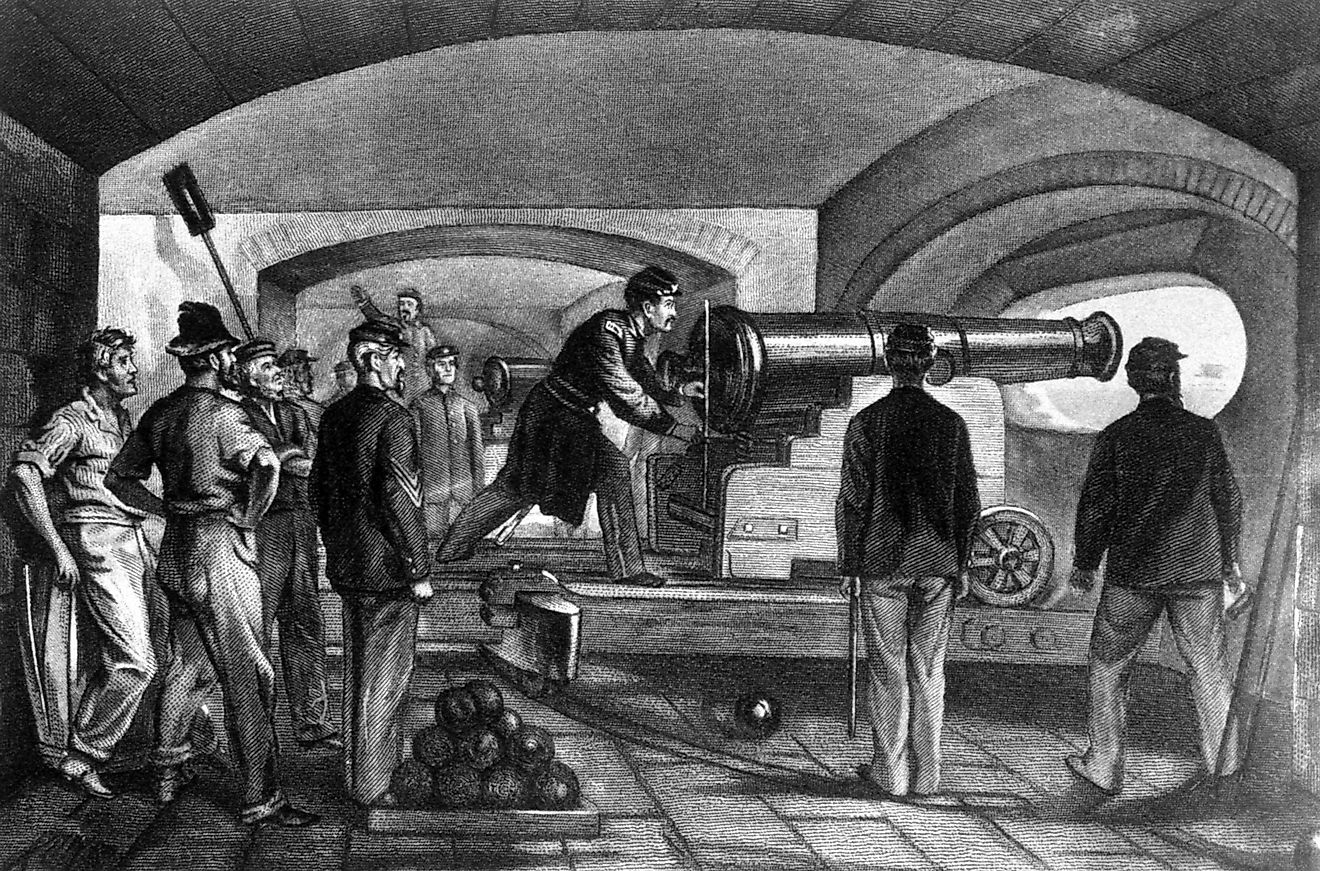Why Did South Carolina Fire On Fort Sumter?

- The battle of Fort Sumter is generally considered to be the event responsible for the start of the US Civil War.
- The South Carolina Army fired on Fort Sumter because the state decided to separate itself from the United States, and the US army was stationed at the fort.
- Following this battle, four other southern states joined the Confederacy, and Abraham Lincoln called for a large number of volunteers, which marked the start of the Civil War.
The Battle of Fort Sumter lasted from April 12th to April 13th, 1861, and is generally considered to be the event that sparked the beginning of the American Civil War. The battle itself mostly consisted of the bombardment of Fort Sumter, near Charleston, South Carolina. Back then, the Confederate Army didn’t exist yet, so the bombardment was done by the South Carolina militia. After the bombardment, the United States Army returned fire and subsequently surrendered. All of these events marked the beginning of the Civil War.
The Secession Of South Carolina
In 1860, South Carolina declared its secession from the United States, and they demanded that the US Army abandon Charleston Harbor, where its facilities were situated. On December 26th of the same year, Robert Anderson, the Major of the US Army, moved his small battalion from Fort Moultrie to Fort Sumter. This was done because Fort Moultrie was considered to be too vulnerable, while Fort Sumter was built on an island and allowed for better defense.
The US President at the time was James Buchanan, and he tried sending supplies to Major Anderson and his army by using a merchant ship. However, the ship was discovered by South Carolina soldiers and seized by the authorities after being fired upon. They also seized all Federal property in that area. The only place left under US command was Fort Sumter.
This naturally led to a situation that was starting to resemble a siege more and more with each passing day. During this time, the Confederate States Army was formed, and they placed a new Brigadier General in the Charleston area. This general was P. G. T.Beauregard, and his first order of command was to reinforce the area around Charleston harbor. This was, of course, aimed at Fort Sumter. The soldiers that were trapped in the fort were living under extreme conditions. They were running short of food, supplies, and men. Their morale was slowly deteriorating while waiting for the Union soldiers to come to their aid.
The Battle That Lasted 34 Hours
Abraham Lincoln was elected for US President on November 6th, 1860, and one of his first assignments included the resupply of the soldiers stationed at Fort Sumter. It was a crisis that needed to be dealt with immediately because of the rising tensions in the area. Lincoln notified the Governor of South Carolina, Francis W. Pickens, that he would be sending supply ships to Fort Sumter. However, this did not achieve good results, because as soon as they got the note, the Confederate Army demanded that Fort Sumter should be evacuated. Major Anderson refused to evacuate, which was the start of the battle.
On April 12th, 1861, at 4:30 a.m., the Confederate Army started to bombard the fort using artillery batteries placed around the harbor. The US army placed in the fort returned fire, but they were outnumbered and outgunned. Only 34 hours after the bombardment started, Major Anderson agreed to evacuate the fort. There were no casualties on either side. After this battle, the US Army received support from the North and the South to start further military action. Lincoln called for volunteers in order to suppress the rebellions caused by the secession of other southern states. These states also joined the Confederacy, and these events led to the start of the Civil War.











